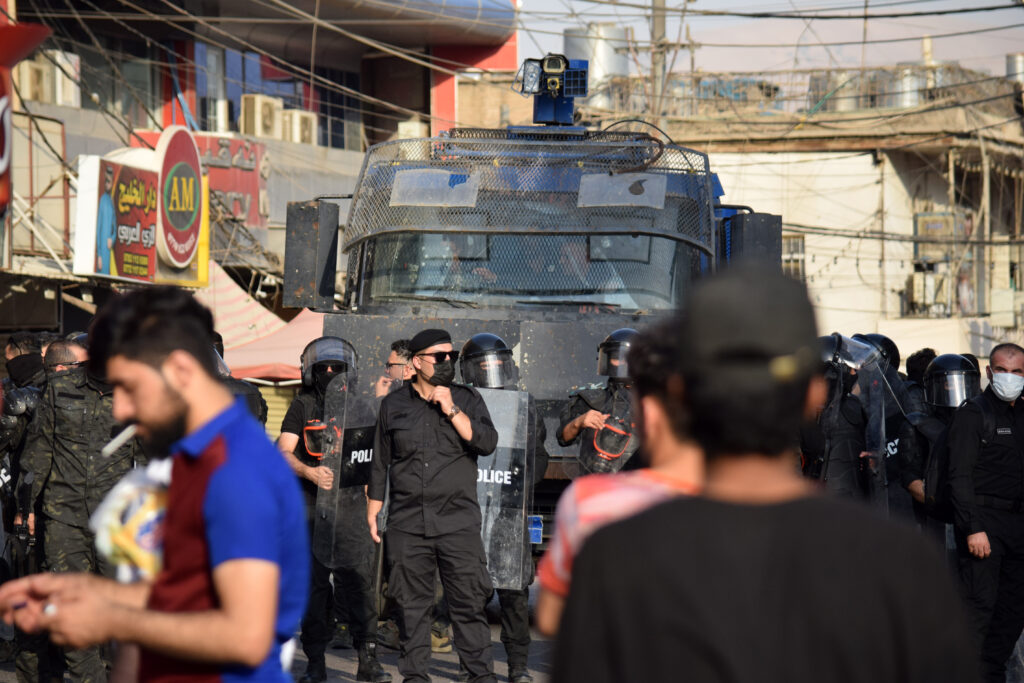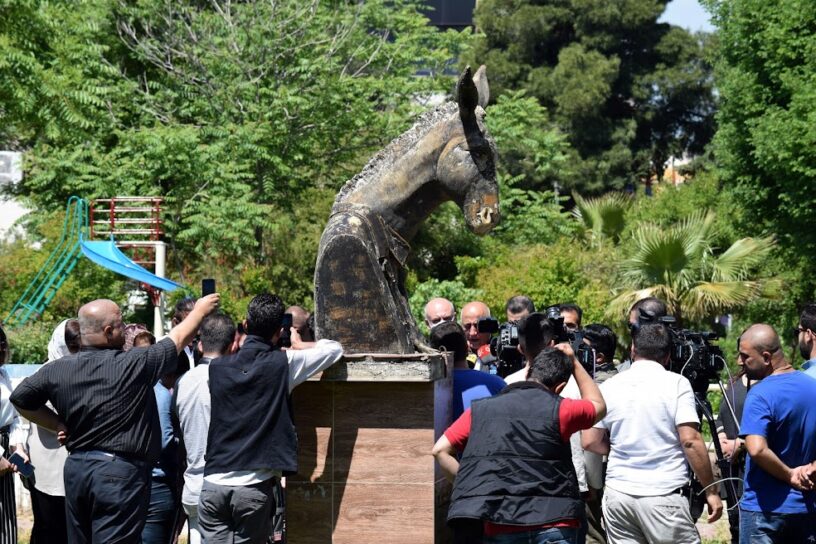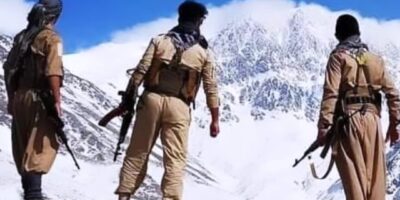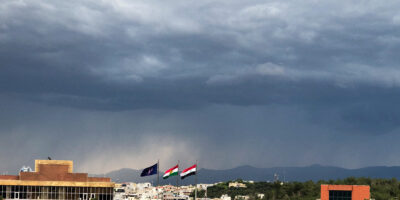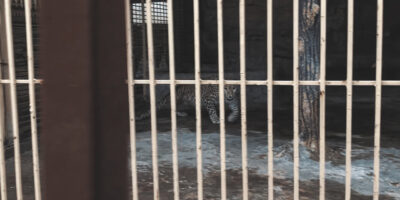SULAIMANI, Kurdistan Region — Angry that authorities had not paid promised stipends, hundreds of university students marched down Salim Street in downtown Sulaimani on November 13. They came to a halt outside the offices of the Patriotic Union of Kurdistan (PUK) Politburo building, where members of local security forces formed a line backed by trucks armed with water cannons.
At a signal, the waiting riot squad and Asayesh began firing tear gas. Some students threw rocks back through the choking smoke.
Bryar Namiq, a reporter for local television station Kurdish News Network (KNN), and his team were busy covering the protest when four members of the security forces dressed in plainclothes interrupted them during a live broadcast. The men, who were not wearing any official identification, confiscated their equipment.
“They took our camera and harassed us because we were filming while the tensions were happening,” Namiq told The Nesar Record.
The KNN journalists were not the only ones subjected to hostility from the security forces. A team from Westga News Agency was detained for about a half hour, according to a press release from the Metro Center for Journalists’ Rights and Advocacy.
Although interference in reporting is hardly a new phenomenon in the Kurdistan Region, there is a growing sense that the PUK leadership, which controls Sulaimani and Halabja governorates, is targeting journalists as part of its efforts to manage internal and external challenges that hobble the party’s capacity to deliver for the public and threaten its political future. In doing so, it relies heavily on security forces to stifle coverage of sensitive issues and intimidate independent voices into silence.
“The behavior of the security forces with journalists is unhealthy and does not match up with the framework of the [Kurdistan Region’s] Press Law. This has made the deterioration of freedom of the press clear,” said Namiq.
Since the beginning of August, at least 28 journalists have been arrested in areas controlled by the PUK, according to alerts from the Committee to Protect Journalists (CPJ), press releases by Metro Center, and statements from broadcasters. This total does not include shorter detentions and less serious violations like those experienced by the KNN and Westga teams.
“Sulaimani used to be a safe and free space for press freedom and freedom of expression, it was called ‘the city of all colors,’” Soran Rashid, editor-in-chief of outlet NasKurd, told The Nesar Record.
“Unfortunately, it is getting worse and worse,” he added.
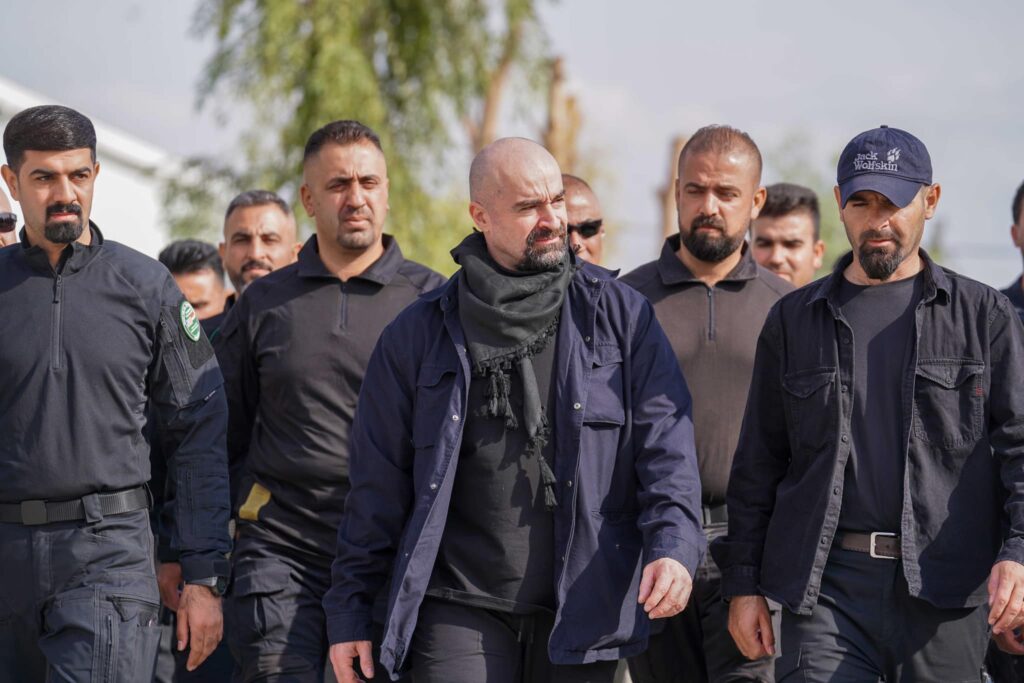
A mixed record
Referencing its long association with poets, artists, and journalists, journalist Akram Tofiq told The Nesar Record that “Sulaimani has been a living city. There have been many voices of freedom throughout its history.”
Historically, the PUK has, for the most part, reflected that character and taken a generally tolerant view towards freedom of expression and the press – at least compared with the other major Iraqi Kurdish party, the Kurdistan Democratic Party (KDP), which, for example, drew international condemnation when its affiliated security forces in Erbil and Duhok governorates detained dozens of journalists and activists in 2020 and prosecuted them in controversial trials the following year.
Media outlets with a wide range of viewpoints have made Sulaimani home, including old-guard independent newspapers like Hawlati and Awene, opposition television station Nalia Radio and Television (NRT), and newer websites like Peregraf.
But, like the KDP, the PUK has also committed serious violations against journalists. During the 2011 anti-corruption protests in Sulaimani, the headquarters of NRT was set on fire by armed men, knocking the station off the air for several months. Two years later, journalist Kawa Garmiani was murdered in Kalar, allegedly at the direction of PUK officials who were angry with his investigations into corruption cases. Those suspected of ordering his assassination were never fully prosecuted.
The PUK-controlled security forces also regularly commit less serious violations that nevertheless fly in the face of both the spirit and the letter of the Kurdistan Region’s Press Law, which guarantees freedom of expression and the press. The Kurdistan Parliament passed the law in 2007 as a way to protect the rights of journalists while on the job and outline proper legal procedures in case of a dispute.
Anecdotally, this kind of behavior appears to be increasing. Metro Center declined to release year-to-date tallies of violations to The Nesar Record, saying that they will release their annual report in January. The Sulaimani Branch of the Kurdistan Journalists’ Syndicate did not respond to a request for data on violations.
As of writing, there are no journalists currently in jail for reasons clearly connected with their work in PUK-controlled areas. However, in speaking with a range of sources, it is evident it is increasingly challenging for journalists to work in Sulaimani and Halabja governorates without interference.
On August 1, NRT reporter Karzan Tariq and camera operator Chenar Ahmed were conducting street interviews in Sulaimani’s main bazaar about the Kurdistan Region’s economic challenges when they were taken into custody without a court order by the Asayesh, a powerful unit of the security forces that handles politically-related matters and reports to the PUK or the KDP in their areas of control. The pair were released after twelve hours, Tariq told The Nesar Record.
At least 20 journalists and media workers were detained in advance of or during protests on August 6 called by the New Generation Movement, an opposition party based in Sulaimani. As a result, coverage of the demonstration was severely limited. Depending on when they were taken into custody, the journalists were held between several days and a few hours.
The protest itself was broken up by PUK-affiliated security forces, who liberally used tear gas and pepper balls against the peaceful crowd that had gathered in Sulaimani’s main bazaar.
As is the case across the Kurdistan Region, protests are where journalists are most vulnerable to violations.
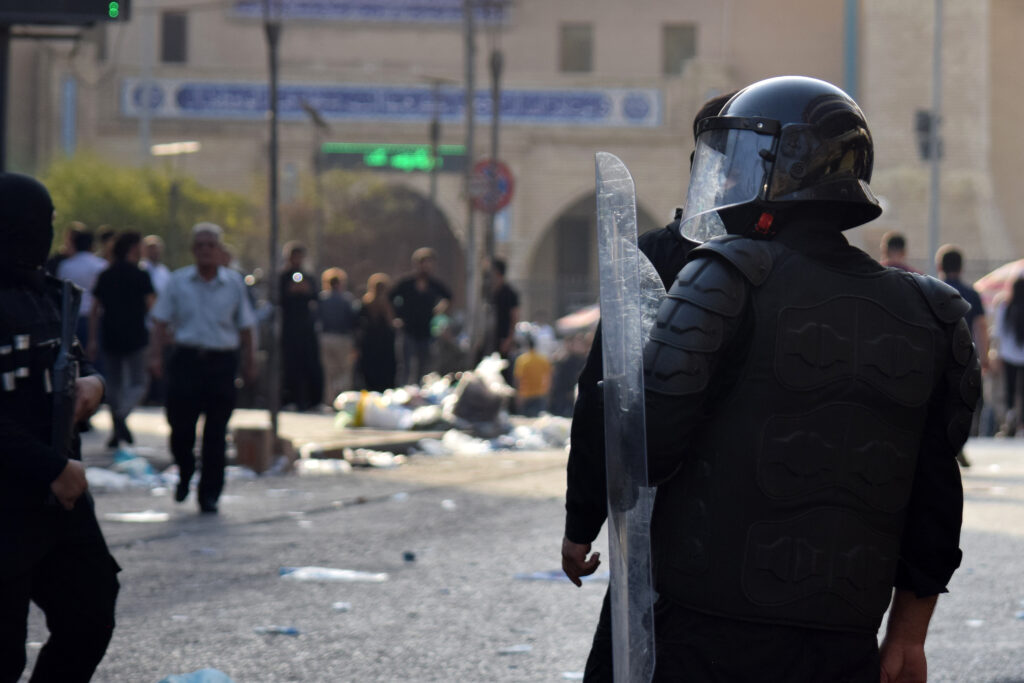
At the November 13 protest where the KNN and Westga teams were harassed and detained, university students were demanding that the authorities resume payment of small stipends of between 60,000 to 100,000 Iraqi dinars ($40 to $70) to help students buy food and pay bills. The program had been suspended initially in 2015 amid a financial crisis in the Kurdistan Region, but demands grew for its reinstatement as the price of oil rose last year.
Following large and occasionally violent protests in November and December 2021, PUK leader Bafel Talabani took ownership of the issue, meeting personally with student representatives and using PUK funds to begin paying stipends. The Kurdistan Regional Government (KRG) in Erbil never disbursed funds for this purpose.
When the current academic year began, the PUK opted not to carry on with the payments and the protests resumed in October in Sulaimani, Ranya, Kalar, and Halabja. In an interview broadcast on KDP-affiliated TV channel Rudaw on November 16, Talabani attempted to make the stipend protests a partisan issue, blaming apparent disparities in financial resources between PUK- and KDP-controlled areas for the party’s U-turn. With their demands unmet, students continue to periodically hold protests — and journalists continue to cover their marches despite the challenging environment.
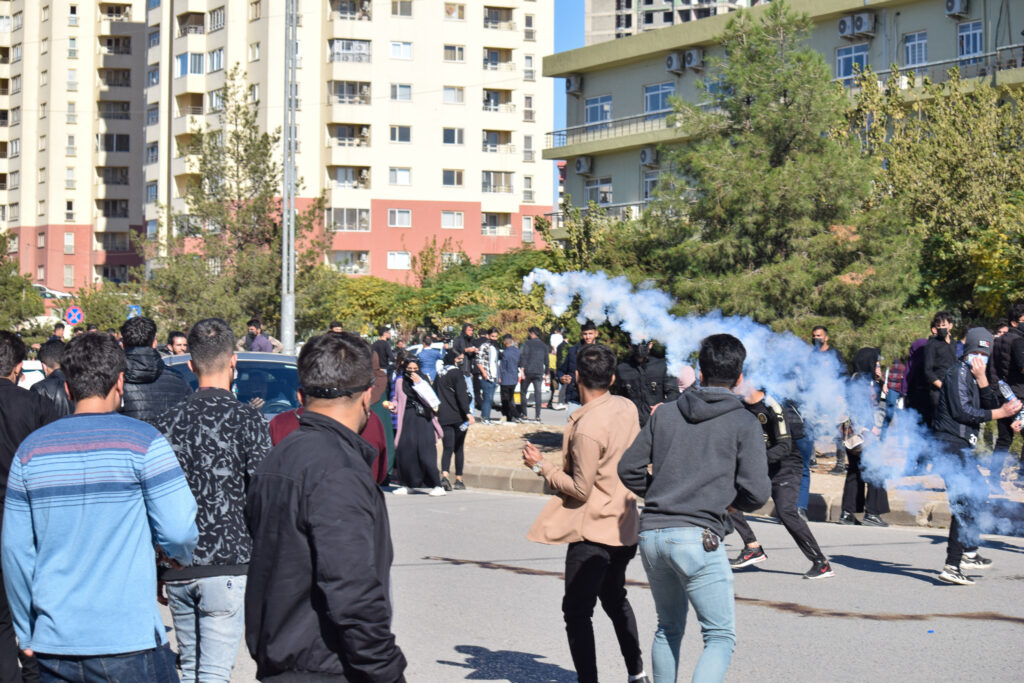
In recent months, arrests and harassment of journalists have gone beyond protest zones. A particularly disturbing incident occurred on October 9, when the PUK-affiliated Counterterrorism Group (CTG) arrested Bwar Media Editor-in-Chief Sartip Qashqayi and Senior Editor Ibrahim Ali in Koya as the pair drove from Sulaimani to Erbil.
According to CPJ, the journalists were arrested on the basis of one complaint from the CTG and another from KRG Minister of Finance and Economy Awat Sheikh Janab. The journalists had not been informed of the cases in advance.
In the days leading up to their arrest, Bwar had extensively covered the killing of a PUK intelligence officer in a car bombing in Erbil on October 7, including the victim’s apparent opinions about internal PUK politics. The Kurdistan Region Security Council later accused high-ranking PUK security officials of ordering the attack, which the PUK adamantly denied. Qashqayi and Ali were held for six days before being released on October 15.
Taken together, these incidents indicate an intolerance for coverage of sensitive subjects, whether they are the economic challenges facing local residents, political protests, or security matters. Journalists working for independent media are at much greater risk if they raise issues that draw the ire of the ruling parties. If an outlet is connected with a powerful figure in the KDP or the PUK, its reporters are often given a greater degree of access and protection than those working independently, but at the cost of following a strict editorial line when it comes to politics.
“The work of the media [in the Kurdistan Region] has become to defend personalities and parties. This is one of the reasons why the media is denigrated and its freedoms have been restricted,” Tofiq said.
A sensitive time for the PUK
Journalists who spoke to The Nesar Record, including some who commented only on background due to the sensitivity of the situation, felt that the increase in violations against journalists in recent months stem from the PUK leadership’s attempts to stabilize its position amid political and economic turmoil in Sulaimani.
“The situation for journalists seems to be related to the political situation,” Namiq said.
Following the Fourth PUK Congress in December 2019, Bafel Talabani and Lahur Sheikh Jangi Talabani were named co-presidents of the party, which turned out to be a messy and ultimately fleeting compromise to the leadership woes that have plagued the party since a stroke debilitated longtime party leader Jalal Talabani in 2012.
On July 8, 2021, Talabani moved to oust Sheikh Jangi and his camp from the political and security infrastructure of the PUK. Since then, Talabani and his younger brother, KRG Deputy Prime Minister Qubad Talabani, have progressively consolidated power within the party with the hope of establishing a “New PUK.”
Nevertheless, the party remains in a difficult position under their leadership.
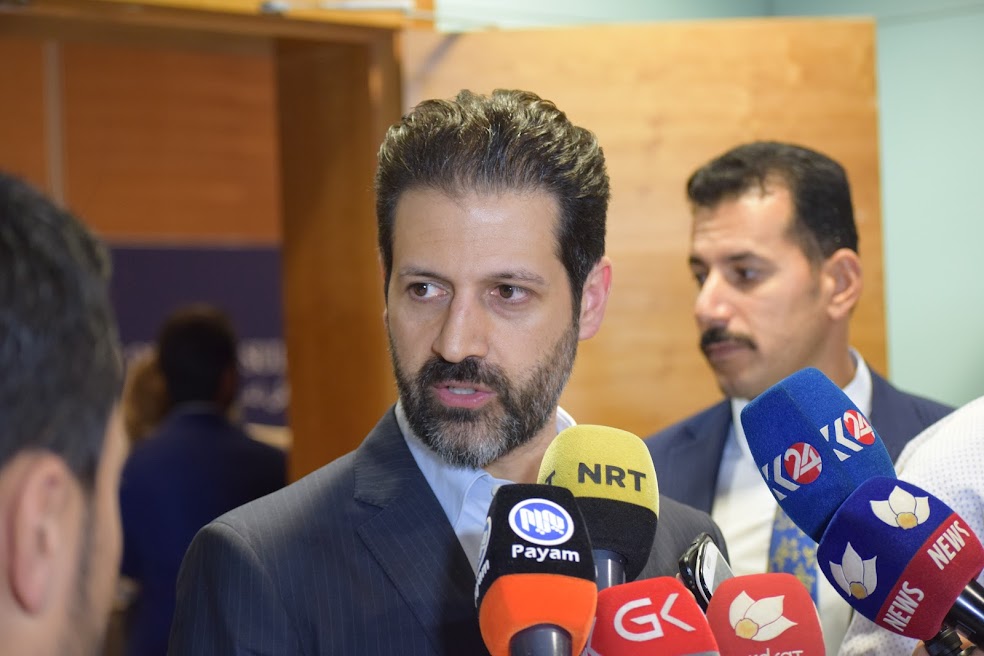
The KDP is growing ever stronger in Iraqi Kurdish politics and is allegedly interfering in the PUK’s security services and using financial leverage to weaken its rival. The PUK’s core voters are demoralized and marginalized internal dissidents like Sheikh Jangi loom in the background. Economic headwinds and unbalanced government finances threaten to further undermine trust in the party’s ability to govern, while opposition forces seek to harness growing popular frustration.
As is so often the case in situations of political instability, journalists are among the first to pay the price. Since the media is largely treated by the authorities as a tool for seeking partisan advantage, openly reporting about sensitive dynamics comes at great risk for Kurdish journalists. The PUK wants to maintain at least a pretense of balance in its rivalry with the KDP and to fend off political rivals within its zone of control and, therefore, has great motivation to suppress alternative viewpoints.
In this environment, the PUK appears to be increasingly using units like the CTG, who arrested Qashqayi and Ali, or the Asayesh, who accost journalists at protests, to prevent embarrassing coverage. The protections and procedures in the Press Law are frequently ignored and those who violate the law do so with impunity.
“The security forces have zero tolerance for media,” Rashid observed, adding that he hoped this dynamic “will be temporary.”
When asked by The Nesar Record about concerns that press freedom is deteriorating in Sulaimani, PUK spokesperson Soran Jamal Tahir said: “We refuse this thinking totally.”
“Sulaimani is a city of coexistence and culture, [a] city of freedom. Journalists have free access to information of interest for the public and they are highly recommended to act and deal with the news and freedom of speech and expression according to the law,” Tahir added.
‘Once a haven for the free press’
The increase in violations in Sulaimani is part of a long-term erosion of respect for basic democratic rights across the Kurdistan Region in the years since the murder of journalist Sardasht Osman in 2010 and the suppression of massive anti-corruption protests the following year. This period also saw the rise of well-funded media operations backed by the ruling parties and the marginalization of independent media.
“Iraqi Kurdistan was once a haven for the free press in the Middle East, but now the region is a prime perpetrator of press freedom violations,” wrote Sherif Mansour, CPJ’s Middle East and North Africa program coordinator, in an alert published in response to the arrests of journalists in Sulaimani in August.
The situation has become acute in recent years. The KDP’s alarming behavior since KRG Prime Minister Masrour Barzani came to power in July 2019 in particular has emerged as a source of international concern.
All four journalists who are currently imprisoned in Iraq are from parts of the Kurdistan Region controlled by the KDP, according to Reporters Without Borders (RSF).
Journalists Sherwan Sherwani, Guhdar Zebari, and Ayaz Karam were arrested in autumn 2020 amid a crackdown on protests and public expressions of dissent in Erbil and Duhok governorates. They were convicted by a court in Erbil in February 2021 on national security charges. All three strongly denied the charges, but were each sentenced to six years in prison.
Qahraman Shukri from the town of Shiladze in Duhok province, was sentenced to seven years in prison on the same charges during a closed trial without a defense lawyer present. He worked for RojNews, an outlet close to the Kurdistan Workers’ Party (PKK).
The United Nations and human rights groups have issued a series of damning reports criticizing the journalists’ arrests, trials, and the conditions of their detention, finding that the authorities did not adhere to basic principles of due process and rule of law.
Foreign governments have also increased their public attention to the issue. For example, on November 8, US Consul-General in Erbil Ivin Hicks Jr. told a group of Kurdish reporters that “journalists should be able to do their jobs without fear of intimidation, retaliation, and harassment.”
The practical and cumulative effect of these violations are a hollowing out of independent media and the suppression of public interest reporting.
“The PUK and the KDP, both authorities, succeeded in spoiling and damaging the essence of real journalism,” Rashid said.
“Now, journalism in Iraqi Kurdistan is not about publishing and disclosing the facts, but publishing those facts that can defame and damage rivals or to make lots of false stories,” he added.
Correction: The Kurdistan Region’s Press Law was passed in 2007, not 2008.
